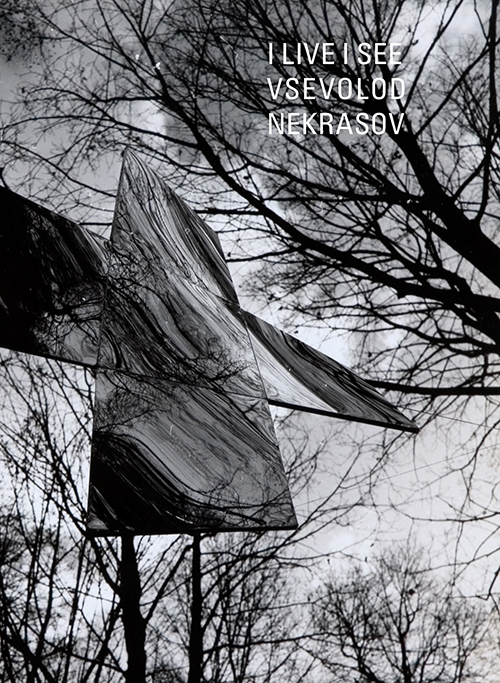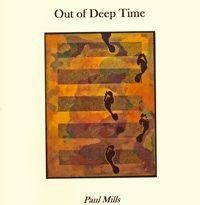Cake #2 – The Carrot Cake Issue
-Reviewed by Afric McGlinchey–
While the title of this tri-annual journal might be ‘cute’, (I reviewed the ‘carrot cake’ issue – which was orange) the contents are definitely impressive. Ingredients include poetry, flash fiction, comment and review.
In spite of an avoidance of prescribed themes, the submissions for this second issue of Cake happened to be ‘surprisingly awash with poems about the sea’ according to editor Martha Sprackland. An illustration by Naomi Smith captures this theme: a couple sits gleefully in bed together while waves crash up on either side of them; shark fins and lifebuoy hinting at interesting underlying themes.
The ordinarily ‘out of place’ is welcome in Cake, as editor Andrew McMillan points out. And in a guest editorial, Luke Kennard specifies examples of ‘out of place’ things he likes: the way John Ashbery juxtaposes contrasting elements, such as Popeye in a Gothic psychodrama; the mixture of tones: one minute ‘high-falutin’, the next, everyday conversational. An example of this type of incongruous juxtaposition is found in a Frank Kuppner poem: ‘it’s just that I don’t like to see too much blood coming out of a cake.’ In many of the poems here, there’s an attraction for things that are oddly askew, strangeness anchored in the everyday.
This then is the essence of Cake. This selection aims to take the top off your head, jolt you with taste sensations you’ve never had.
The issue opens with a poem called ‘The Sunken Diner’, also by Luke Kennard where the surreal blends with reality and by the turn at the end, it’s the surreal that feels more real.
A poem by Cath Nichols, called ‘Fathom’, captures the transition phase of life and death ‘between the hours of two and four.’ Hugh Thomson’s ‘Screening’ is disarming, with gentle, self-deprecating humour and turn at the last line. I was taken by the evocative soundscape of Geoff Stevens’ Recalling Wave No. 7: ‘like a rain-soaked raven’s wing flapping/in my face’, and Martin Fraser’s Blue Wind: ‘taste the wind-nipped salt drying on your lips’. He also has some striking images: ‘fish/jumping for their lives straight/into mouths of birds.’ Joe Boswell’s prose poem is untitled – a visceral description of a roomful of people who disgust the speaker, especially the beautiful girl opposite: ‘I want to envelop her mouth in mine; to clamp her jaw in my bite and tear out her teeth.’ A particularly strong poem by Sue Burge is ‘On accepting Oysters from Strangers’, where a man approaches a woman, ‘absorbing/the reek of spent men, furtive sweat’ and ‘a cat, black as all the sins’ feasts on her discarded oyster shell. In ‘Pennine Nocturne’, Phillip Beverley describes the dark: ‘a canvas no artist has named’ – as ‘the colour of crow.’
‘A love song’ by Noel Williams captivates for all but the last stanza, which might be better left out. Using the refrain ‘Which is why’, it describes a woman loved, but unavailable, who takes ‘a sickle to the lawn in moonlight’. Lovely image. In a chilling poem by Jacob Silkstone, the foreshadowing of doom begins with the ‘first gouts of dawn’ and the ‘dim mortuary light of morning’. The final line of the first stanza spells out the significance of this day: ‘she picked out her Sunday dress to die in.’ These poems beautifully place landscape as backdrop for drama. ‘To a Daughter of Roan Inish’, by Alexandra Lister, is filled with music and melancholy: ‘On Milk Street they pull up black fish,/slap from the grey squall and spill’.
While many of the poems are about sea-things, others are about exotic places and strange fruits, some about death, suicide, rape, divorce. Yet these latter themes don’t sit heavily on the stomach, and this may be due to the fine balancing act of the ordering of poems, which link well together, sometimes threaded by a single word.
Melanie Graham’s provocatively titled ‘Discovering Porn on the Yard Sale Computer’ and ‘Divorcee Reflects on the Divinity of Erectile Dysfunction’ are graphically gruesome; but the endings don’t disappoint. Her third poem, Between Women, uses a powerful image to symbolise a violation: ‘I sat, mesmerized/by the silver platter of tomatoes,/plumbed innards bare as seeded hearts,/sliced so thinly, arranged so carefully.’
Mark Burns Cassell reviews a collection by Guyana-born Grace Nichols: Picasso I Want my Face Back. Interspersed with criticism about expectation of a ‘thematic progression which never quite comes’, he describes her work as ‘roomy’ and ‘fluid’, with ‘raw energy…’richness of imagery’, tenacity and joy: ‘But most of all, you take us/down rivers down rivers/where our hands sift soft vegetational-waters-/some gleaming dark as sarsaparilla/some brown as rum and just as drunk.’ (Into the Interior). Certainly the review sent me looking for her poetry.
‘The future of poetry begins here’ claim Claire Pollard and James Byrne in their introduction to Voice Recognition, an anthology reviewed by Sarah Hymas. The poems here, Hymas writes, ‘are frequently high energy, self-conscious and stretching for innovation.’ Sometimes she is delighted by the result; in other poems, such as those by Annie Katchinska, the world created is ‘itchy, almost, like eczema, but eczema that covers the skin in beautiful designs.’ Many poets admirably resist the urge (‘displayed elsewhere’) to ‘pile wilfully eclectic imagery upon itself, so smothering melody and clarity.’ While she admits this selection does offer something for ‘almost everyone’, she is not entirely convinced herself and wonders how many of these poets will still be visible after a decade. ‘If this is a manifesto…then I’d hope the less rushed the poet is, the more ground they’ll cover.’ An articulate, thought-provoking review.
The standard of reviews, however, is somewhat uneven, and strangely, typos begin to creep in towards the end. What is also frustrating is that contributor notes are missing for over half of the contributors.
But three particularly outstanding poems, Dymond’s ‘White-tailed Eagle’, ‘Spearhafoc’ by Steve Ely, and ‘Moth’ by Andrew Wynn Owen, provide a satisfying conclusion to this anthology, redeeming my original impression of overall excellence.




Yes, Ely’s poems are particularly outstanding. I’ve read his stuff in a range of print and online journals, etc, and he is consistently original, dynamic and profound.
Spearhafoc is one of the best poems I’ve read for years